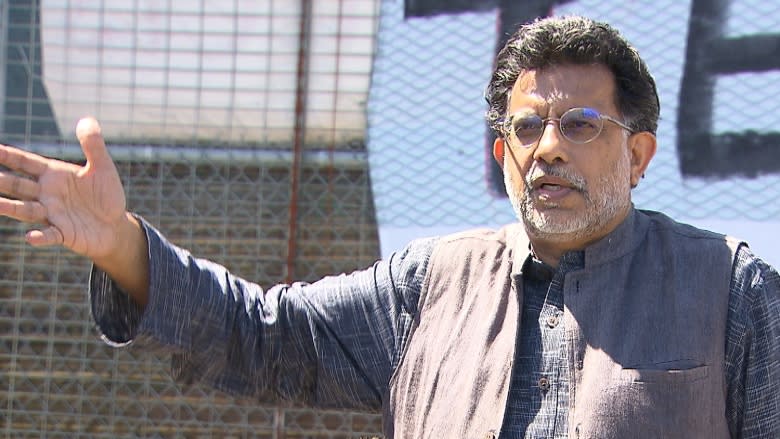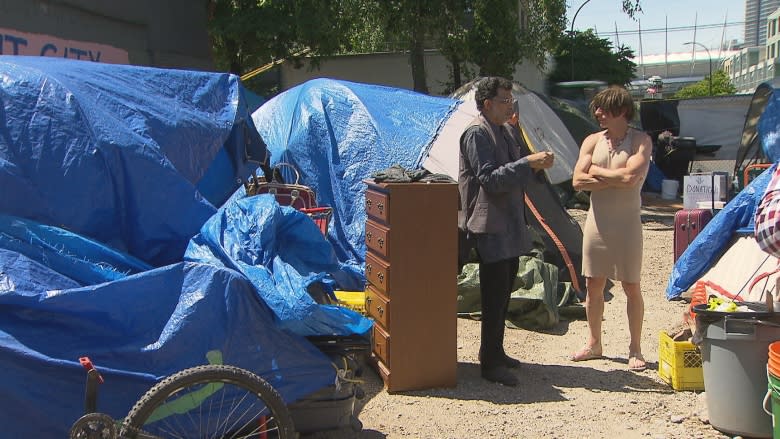Vancouver becoming 'apartheid city' in housing crisis, says former UN rep
Vancouver is becoming an "apartheid city" in terms of the divide between rich and poor, said Miloon Kothari, the former UN special rapporteur for housing.
Kothari, who visited Vancouver a decade ago in that role, has returned to give several talks and spent Monday visiting the Downtown Eastside, Balmoral Hotel and the "Ten Year Tent City," which stood in the same place in 2007.
"I'm very disturbed to see that not much has changed. In fact, the situation has become worse," said Kothari.
He was referring to the steep increase in homelessness in the city and region, alongside "unbridled speculation" of land and property. Kothari said it was "shocking" that welfare rates haven't changed over the 10 years.
"It's sheer neglect," said Kothari, who lives in New Delhi.
"When you look at Vancouver ... it seems to me very quickly becoming sort of an apartheid city, where it is not only off-limits ... to low income people and they're concentrated in one neighbourhood and a little bit across the city, but it's also increasingly out-of-limits for middle-class residents."
National housing strategy coming
Kothari said the housing problem requires co-ordination between municipalities, the province and Ottawa.
"I don't see steps being taken to control speculation," he said and was critical of the province's foreign buyers tax noting much speculation comes from Canadian buyers.
He is heartened the federal government has promised a national housing strategy and new money for housing.
Vancouver Mayor Gregor Robertson, when asked about Kothari's comments, agreed that all levels of government need to work together, and called on the next provincial government to do more for housing.
He also echoed the anticipation for federal investment.
"We should see Ottawa step back in as a major partner in terms of funding," said Robertson on CBC Radio's The Early Edition.
"I'm looking forward to major changes to CMHC [Canada Mortgage and Housing Corporation], and that they go back to their traditional role of creating housing rather than just doing some financing on the side."
"We need to see the province doing that as well," Robertson said.
Robertson said the city's role is approving increased density to create supply. Vancouver has also offered the B.C. government 20 city-owned properties worth about $250 million to build more social housing.
Kothari said he is meeting Tuesday with city officials.
With files from CBC's The Early Edition



